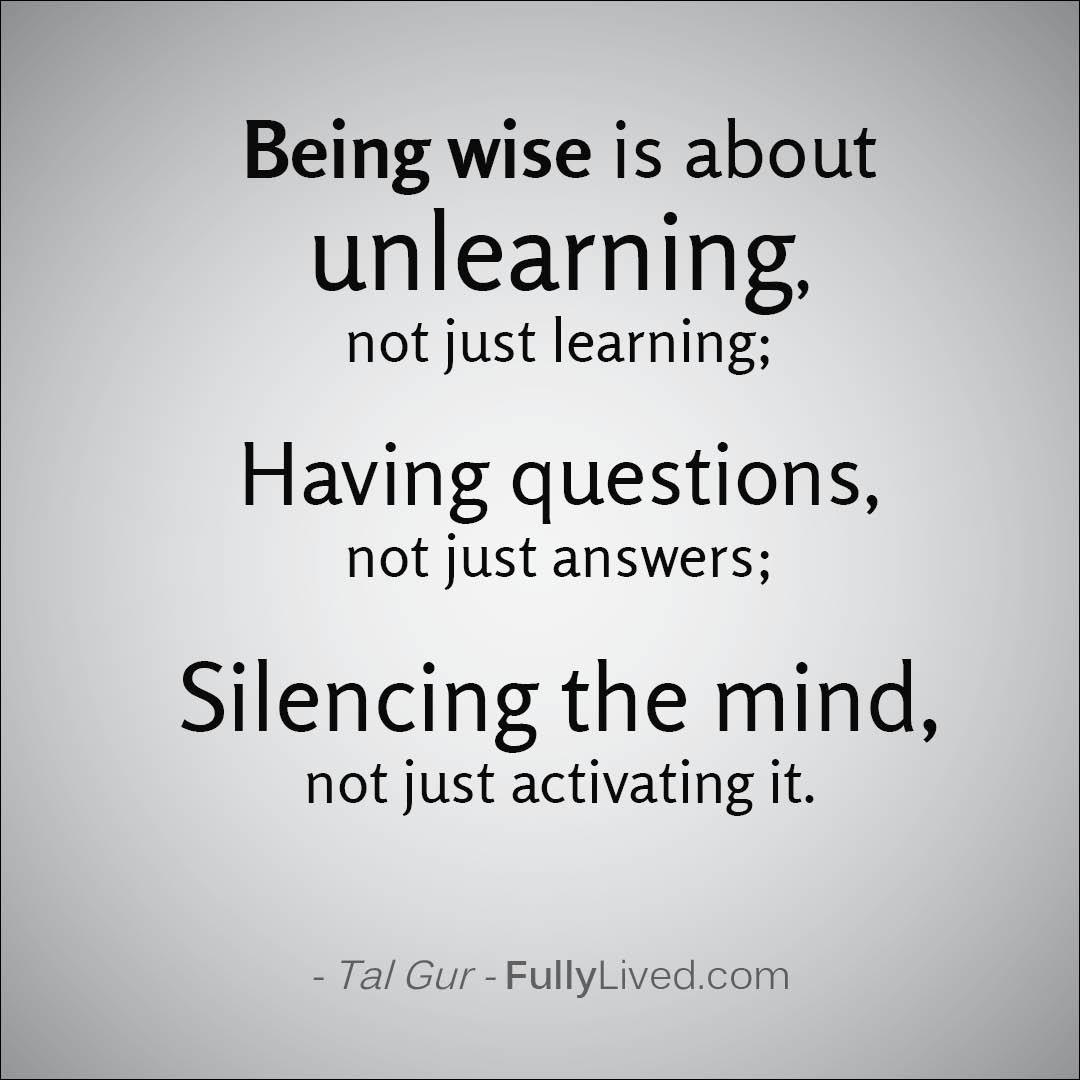Being wise is about unlearning, not just learning; Having questions, not just answers; Silencing the mind, not just activating it.
Traditionally, we tend to associate wisdom with gathering knowledge, and to an extent, that's true. But this quote reminds us that sometimes, wisdom involves unlearning too. You might ask, "Unlearning? But why?" Well, often, the things we've learned can be outdated, incorrect, or simply no longer relevant to our lives. Unlearning involves challenging our preconceived notions, our biases, and our outmoded beliefs. It's about letting go of old, potentially harmful ways of thinking to make room for fresh, more nuanced perspectives.
Furthermore, the quote emphasizes that wisdom also involves asking questions, not just knowing the answers. In our fast-paced, information-loaded society, we often prize quick solutions and definitive answers. However, wisdom understands the value of curiosity, questioning, and open-ended exploration. It acknowledges that life is complex, and that sometimes, it's more about the journey of seeking than arriving at a neat answer. It's about being humble enough to admit that we don't know everything, and that there's always more to learn.
Finally, the quote speaks to the importance of stilling the mind, not just activating it. Now, we're all for mental engagement and stimulation - that's a huge part of personal growth. But equally vital is the ability to calm our minds, to find that inner quietude. This silencing isn't about inactivity or ignorance, but rather about creating a mental space where reflection, introspection, and deeper understanding can occur. It's about being present, mindful, and attentive to the subtleties of our experiences that can often be missed in the hustle and bustle of constant thought.
Is there a historical example that illustrates the message of the quote?
One such example is the life and teachings of Socrates, the ancient Greek philosopher.
Socrates is known for his Socratic method of inquiry, which involved questioning and challenging commonly held beliefs and assumptions. He believed that true wisdom comes from acknowledging one's own ignorance and constantly questioning and examining one's own knowledge and beliefs. Socrates famously said, "I know that I am intelligent because I know that I know nothing."
Socrates emphasized the importance of unlearning preconceived notions and being open to new perspectives and ideas. He believed that true wisdom comes from the ability to recognize and admit one's own ignorance, which allows for continuous growth and learning. Rather than providing easy answers, Socrates aimed to stimulate critical thinking and self-reflection through his method of questioning.
Socrates' approach was not about accumulating knowledge for the sake of knowledge alone. It was about actively engaging the mind, challenging assumptions, and seeking deeper understanding. By questioning and examining his own and others' beliefs, Socrates encouraged intellectual humility and a willingness to reconsider previously held convictions.
* If you’re seeking extra motivation and inspiration on your journey of personal growth, I recommend taking a look at my SMART growth goals page, This page offers thousands of goal ideas that can assist in the establishment of new aspirations and the attainment of greater heights in one's life. In fact, it was instrumental in my creation of a list of 100 goals, which I pursued for a decade.
Chief Editor
 Tal Gur is an author, founder, and impact-driven entrepreneur at heart. After trading his daily grind for a life of his own daring design, he spent a decade pursuing 100 major life goals around the globe. His journey and most recent book, The Art of Fully Living, has led him to found Elevate Society.
Tal Gur is an author, founder, and impact-driven entrepreneur at heart. After trading his daily grind for a life of his own daring design, he spent a decade pursuing 100 major life goals around the globe. His journey and most recent book, The Art of Fully Living, has led him to found Elevate Society.






















